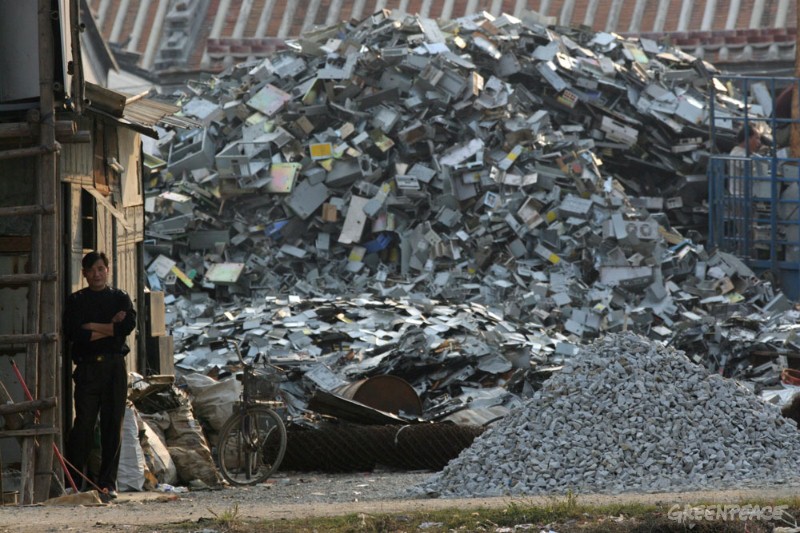German chemist Michael Braungart is an environmentalist who wants us to consume as much as we’d like, to live richly and abundantly, to not trouble ourselves about conservation, so he’s dedicated himself to creating materials which will never truly become trash. It sounds like a wonderful world, all our greed biodegrading into natural beauty, but we may be living below sea level long before we’ve achieved this post-waste idyll. From Michaela Schiessl at Spiegel:
“Our current world of products is totally primitive,” says Braungart. We produce things, often filled with pollutants, and we eventually throw them away. The toxins escape into the soil, air and water. In his view, our practices are completely underdeveloped — part of a dark, Neanderthal-like world. “A product that becomes waste is simply a bad product. Bad chemistry.”
Braungart wants to apply good chemistry, and make products without any pollutants, which either end up as compost or are returned into the technical cycle as a pure, unadulterated raw material. If this were achieved on a large scale, many things would change. Wastefulness would no longer be bad but would in fact be a virtue, and we would be living in a world filled with abundance instead of restrictions. Our world would mimic nature, in which, for example, the blossom on a cherry tree turns into fruit, humus or a new tree – an elixir of life in all three cases. This eco-hedonism is Braungart’s creed. “I want people to live extravagantly,” he says.
Austerity and sacrifice, the favorite disciplines of many environmentalists, are anathema to him. The German environmental movement? “A club of guilt managers deprived of enjoyment.” The proponents of sustainability? “They’re optimizing the wrong thing.”
To turn his theory into practice, Braungart has established a company, EPEA. His German clients include personal care products giant Beiersdorf and lingerie maker Triumph, mail order company Otto and cosmetics maker Aveda. Braungart advises Volkswagen, Unilever and BMW. With his help, HeidelbergCement developed a special cement that purifies the air once its been processed into concrete. And, in 2013, Puma introduced the first fully recyclable athletic clothing collection, which includes compostable shoes.•

